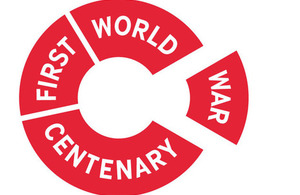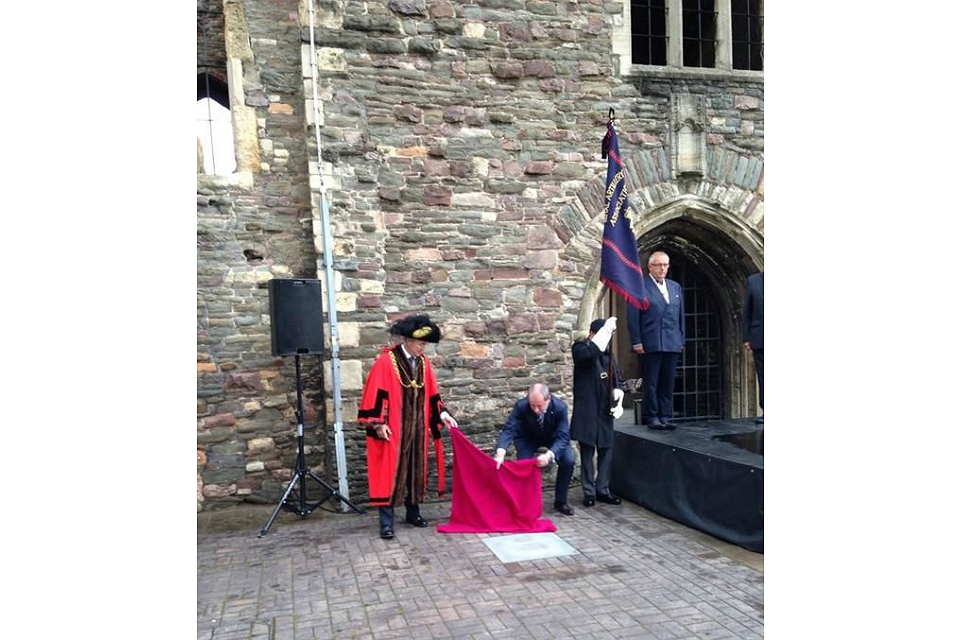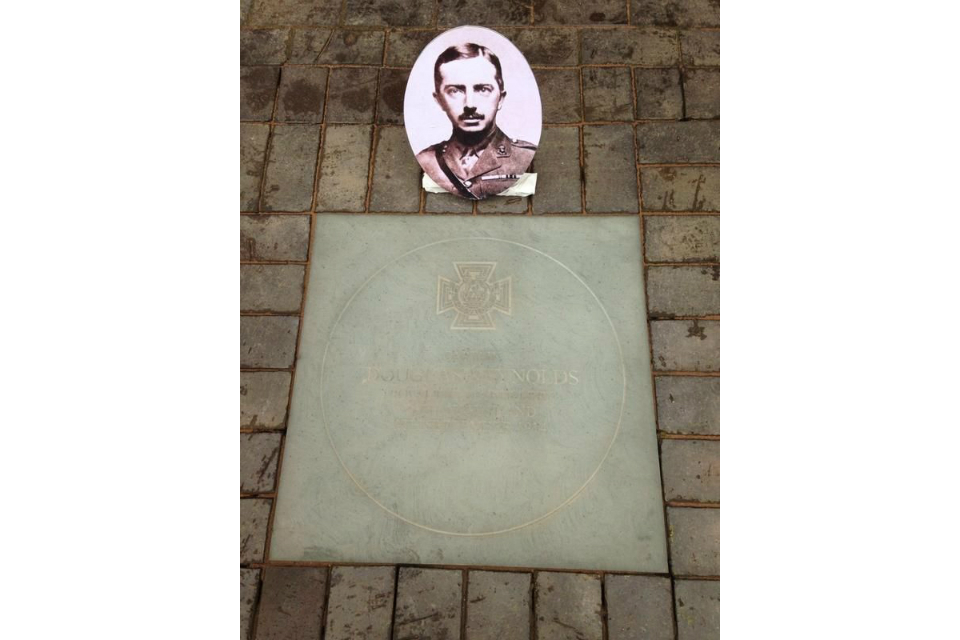Stephen Williams pays tribute to the bravery of Douglas Reynolds VC
Communities Minister paid tribute to Captain Douglas Reynolds as commemorative Victoria Cross paving stone was laid in his honour in Bristol.

Communities Minister Stephen Williams today (26 August 2014) paid tribute to the bravery of Captain Douglas Reynolds VC, as a commemorative Victoria Cross paving stone was laid in his honour in Bristol, 100 years to the day after Captain Reynolds, serving in the 37th Royal Field Artillery, led 2 teams of volunteer drivers to recapture British guns at Le Chateau in France.
Last week saw the start of the nationwide campaign to honour those who received the Victoria Cross, Britain’s highest military honour, during the First World War. Over the next 4 years on the date corresponding to when they were awarded the VC, commemorative paving stones will be laid in their place of birth or where they lived following the war. The first stones were laid on 23 August because the first Victoria Crosses were awarded on this date exactly 100 years ago.
Speaking ahead of the ceremony at St Peter’s Church, Castle Park, where he will join representatives of the armed forces and the Royal British Legion Stephen Williams said:
Reading the citation to Douglas Reynolds’s tremendous act of bravery, reminds us of our duty to remember all those who gave their lives fighting in the Great War.
The stones being laid across Bristol over the coming years will provide a lasting legacy to the gallantry of the brave men of this city and will enable residents to gain a greater understanding of how local heroes played a key role in the history of the First World War.

469 stones will be laid in communities in England, Wales, Scotland and Northern Ireland. The programme will also see 35 VC recipients commemorated in the Republic of Ireland. 145 stones will be laid in the National Memorial Arboretum to commemorate those born overseas. The commemorative stone for Douglas Reynolds VC is the first of 8 that will be laid in Bristol each marking the anniversary of the action of VC holders either born in or with a connection to the city.
Lord Mayor of Bristol, Alastair Watson said:
Every one of us owes a huge debt to all those people who served and lived through the First World War and it is fitting that, as a city, we can commemorate Douglas Reynolds and the 7 other men whose individual acts of bravery were recognised with the Victoria Cross.
The citation to Captain Douglas Reynolds VC reads:
On 26 August 1914 at Le Cateau, France, Captain Reynolds took up two teams with volunteer drivers, to recapture two British guns and limbered up two guns under heavy artillery and infantry fire. Although the enemy was within 100 yards he managed, with the help of two drivers (Job Henry Charles Drain and Frederick Luke), to get one gun away safely. On 9 September at Pysloup, he reconnoitred at close range, discovered a battery which was holding up the advance and silenced it.
Douglas Reynolds went on to achieve the rank of Major, but was wounded in action, and died in the Duchess of Westminster’s hospital in Le Touquet, France, on 23 February 1916.
Major Reynolds is buried in Etaples Military Cemetery in Northern France, while his Victoria Cross is displayed at the Royal Artillery Museum in Woolwich, London.

Further information
Follow the laying of the commemorative stones on Twitter #VCpavingstones, and on Pinterest.
See the dates of upcoming paving stone laying ceremonies.
The decision about the site of each stone has been taken by the relevant local authority. Guidelines to local authorities encouraged them to site the stones in a location that would have had resonance with the VC recipient, such as outside a house that they lived in or near their old school. Most importantly, the stones should be part of the community and sited in a position where they will be visible to members of the public. Efforts to trace Douglas Reynolds VC’s relatives have been unsuccessful so the stone is being laid at St Peter’s Church, already a focal point for war commemorations with 2 memorial plaques for the Blitz and 1 for evacuees.
A public competition was held to choose a design for the paving stones and this was judged by a panel of 7 experts. The competition was won by Charlie MacKeith from London whose winning design will feature on all the paving stones that will be laid in communities across the country. The circular design seeks to ‘make one pause and remember’ and uses the material, form and lettering of the family of memorials used by the War Graves Commission.
The paving stones are made of Scoutmoor Yorkstone a hard-wearing British stone that is quarried near Ramsbottom. Each stone will include the name of the individual, the rank and regiment of the individual (at the time the VC was awarded) and the date of the action for which the VC was awarded.
Read more about all 8 people with Bristol connections awarded the VC during the First World War.
Bristol 2014 is co-ordinating a large programme of events to commemorate the First World War.
Bristol and Avon Family History Society have located relatives of some of the VC holders to find out more about their lives and update relatives on the commemorative stone project. They are keen to hear from anyone related to any of the VC holders and anyone wishing to get in touch should email [email protected].
Office address and general enquiries
2 Marsham Street
London
SW1P 4DF
Email [email protected]
General enquiries: please use this number if you are a member of the public 030 3444 0000
If your enquiry is related to COVID-19 please check our guidance page first before you contact us - https://www.gov.uk/guidance/coronavirus-covid-19-guidance-for-local-government.
If you still need to contact us please use the contact form above to get in touch, because of coronavirus (COVID-19). If you send it by post it will not receive a reply within normal timescale.
Media enquiries
Email [email protected]
Please use this number if you are a journalist wishing to speak to Press Office 0303 444 1209